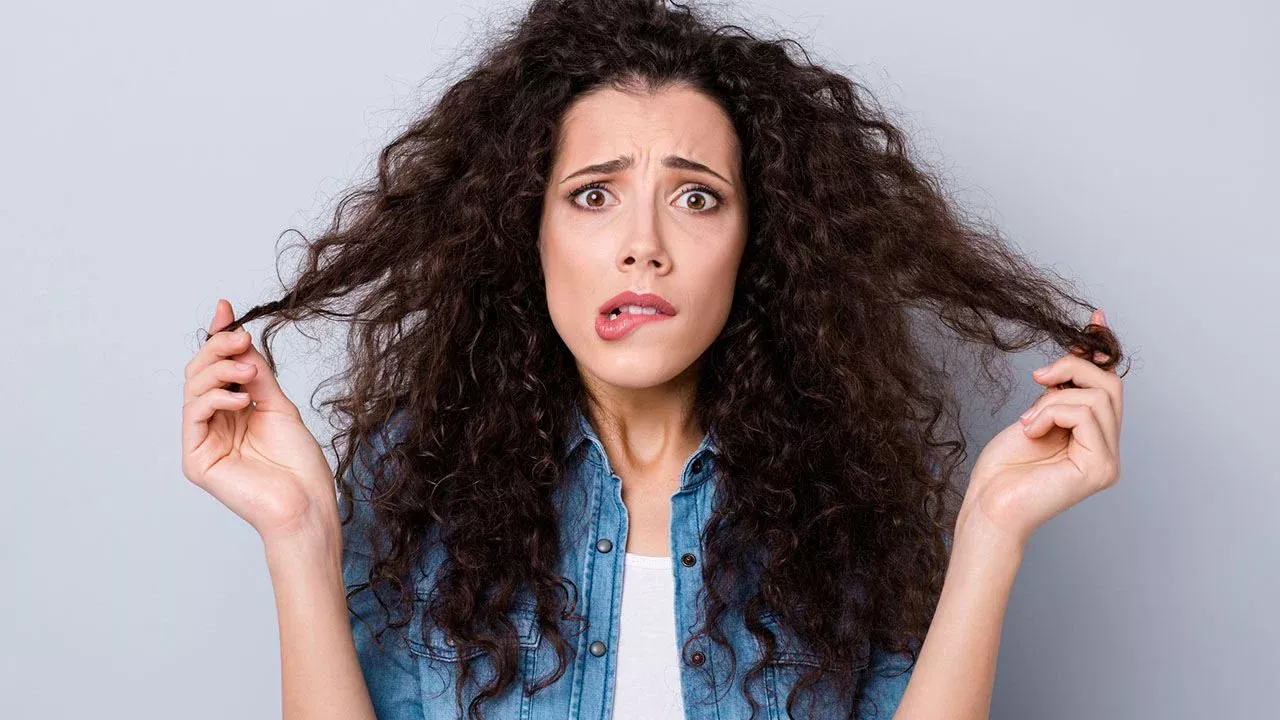To remove oil from your hair, you can try the following methods:
- Dry Shampoo: Apply dry shampoo to your roots and gently massage it in. Let it sit for a few minutes, then brush it out thoroughly to remove the oil.
- Cornstarch or Baby Powder: If you don’t have dry shampoo, you can use cornstarch or baby powder as an alternative. Apply it to your roots, let it sit for a few minutes, then brush it out.
- Apple Cider Vinegar Rinse: Mix equal parts of apple cider vinegar and water, then apply it to your hair, focusing on the roots. Let it sit for a few minutes before rinsing it out with lukewarm water.
- Baking Soda Paste: Mix baking soda with water to create a paste, then apply it to your roots and massage gently. Let it sit for a few minutes before rinsing thoroughly.
- Clarifying Shampoo: Use a clarifying shampoo designed to remove build-up and oil from your hair. Make sure to follow the instructions on the bottle and rinse thoroughly.
- Lemon Juice: Mix lemon juice with water and apply it to your hair, focusing on the oily areas. Let it sit for a few minutes before rinsing it out. Lemon juice can help cut through the oil and leave your hair feeling fresh.
- Aloe Vera: Apply aloe vera gel to your hair, focusing on the roots. Let it sit for about 10-15 minutes before rinsing it out with lukewarm water. Aloe vera can help absorb excess oil while also soothing the scalp. Read about What Vitamin Deficiency Causes Hair Loss
- Tea Rinse: Brew some strong tea (such as black or green tea) and let it cool. Pour it over your hair, focusing on the roots, and let it sit for a few minutes before rinsing it out. Tea contains tannic acid, which can help absorb oil.
Remember to avoid over-washing your hair, as this can strip it of its natural oils and lead to further oiliness. Additionally, try to identify any underlying causes of excess oil production, such as using overly harsh hair products or not rinsing out conditioner properly. Adjusting your hair care routine accordingly can help prevent oiliness in the future.
Understanding the Causes of Oily Hair
Before diving into solutions, it’s essential to understand why your hair becomes oily in the first place. Your scalp naturally produces oils called sebum to keep your hair moisturized and protected. However, factors such as genetics, hormonal changes, and environmental conditions can cause the sebaceous glands to produce excess oil, leading to greasy hair. Discover about How to Bleach Hair

Pre-Wash Preparations
Preparing your hair before washing can make the cleansing process more effective. Start by gently brushing your hair to distribute the oils evenly throughout your strands. Choose a shampoo specifically formulated for oily hair or one that contains clarifying ingredients to help remove excess oil. Additionally, consider incorporating DIY pre-wash treatments such as aloe vera or tea tree oil to help balance oil production.
Effective Washing Techniques
When it comes to washing oily hair, technique matters. Begin by rinsing your hair with lukewarm water to open the hair cuticles and allow for better product penetration. Apply a small amount of shampoo to your scalp and massage gently, focusing on the roots where oil tends to accumulate. Rinse thoroughly with water, ensuring no shampoo residue is left behind. Learn about How to Do a Fishtail Braid
Post-Wash Care
After shampooing, it’s important to follow up with an appropriate conditioner. However, avoid applying conditioner directly to your scalp, as it can weigh down your hair and exacerbate oiliness. Instead, focus on the mid-lengths to ends of your hair to keep them hydrated and manageable. When drying your hair, opt for air-drying or use a blow dryer on a low heat setting to prevent further oil buildup.
Natural Remedies for Oily Hair
If you prefer natural alternatives, several remedies can help combat oily hair. A lemon juice rinse can help balance pH levels and remove excess oil, while an apple cider vinegar rinse can clarify the scalp and control oil production. Additionally, applying aloe vera gel to your scalp can soothe inflammation and regulate sebum production.
Lifestyle Changes to Prevent Oily Hair
Incorporating certain lifestyle changes can also help prevent oily hair in the long run. Pay attention to your diet, as consuming excessive amounts of greasy or sugary foods can contribute to oiliness. Practice stress-management techniques such as meditation or yoga to reduce cortisol levels, which can stimulate oil production. Finally, choose hair products that are lightweight and non-comedogenic to avoid clogging the pores on your scalp.
Professional Treatments
If home remedies fail to provide relief, consider seeking professional treatments for oily hair. Many salons offer scalp treatments specifically designed to balance oil production and cleanse the scalp thoroughly. Additionally, consulting with a dermatologist can help identify any underlying issues contributing to your oily hair and determine the best course of action.

Conclusion
Dealing with oily hair can be a frustrating experience, but it’s not something you have to live with indefinitely. By understanding the causes of oily hair and implementing effective cleansing techniques and lifestyle changes, you can keep your locks looking fresh and oil-free. Experiment with different remedies and treatments to find what works best for your hair type, and remember that consistency is key to achieving long-lasting results.
FAQs
- How often should I wash oily hair?
- It’s recommended to wash oily hair every other day or every two days to prevent excessive oil buildup.
- Can I use dry shampoo to absorb oil between washes?
- Yes, dry shampoo can be a useful tool for absorbing excess oil and refreshing your hair between washes.
- Are there any dietary changes I can make to reduce oily hair?
- Incorporating more fruits, vegetables, and lean proteins into your diet can help balance oil production and improve the overall health of your hair.
- Will washing my hair with cold water help reduce oiliness?
- Cold water can help close the hair cuticles and prevent excess oil from being stripped away, but it may not significantly reduce oiliness on its own.
- Can hormonal imbalances contribute to oily hair?
- Yes, hormonal changes, such as puberty, pregnancy, or menopause, can affect oil production in the scalp and lead to oily hair.

Hi I’m Julie. Meet the talented fashion designer with three years of industry experience— the creative force behind urbansoutfitter.com. As the author of this stylish haven, they bring a fresh and innovative perspective to the forefront of fashion discussions.

